News
30 PhD holders resigned from Bauchi varsity, ASUU insists
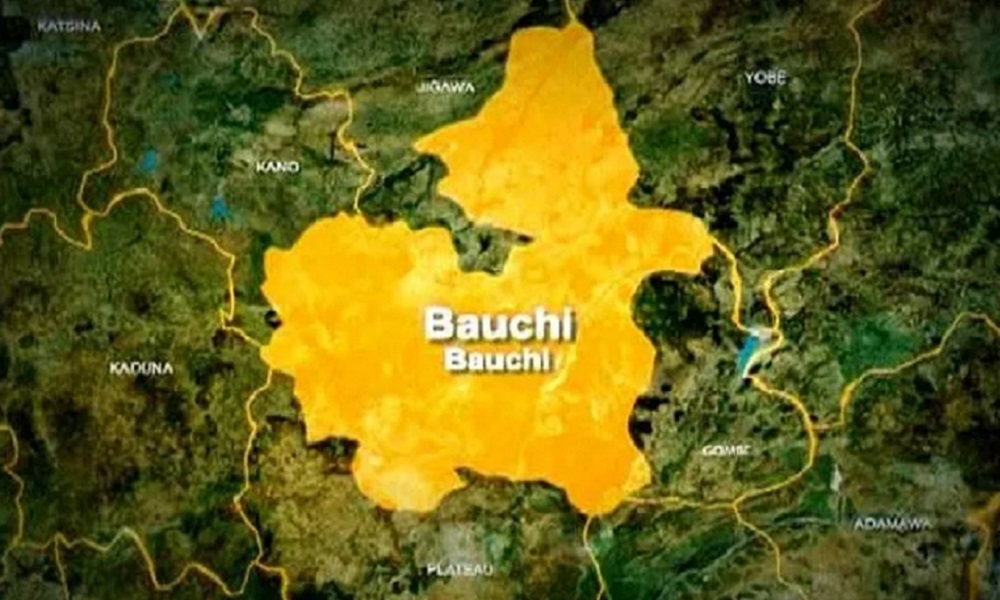
The Academic Staff Union of Universities, Sa’adu Zungur University in Bauchi State, has said it would make public the names of 30 PhD holders who resigned from the university.
This was contained in a press release on Saturday by the ASUU-SAZU branch chairperson, Awwal Hussain.
Hussain, who was responding to a rejoinder by the university’s Public Relations Officer, Auwal Hassan, which faulted publications, stating that 30 PhD holders resigned from the university, said ASUU had a verified list of the said number of staff who resigned and will release it at the appropriate time.
He held: “The rejoinder issued by the SAZU spokesman was unfortunate and misleading. It presented the issues raised by the union as inaccurate, which we view as mischievous and misleading.
“The most alarming part is the acknowledgement of only one deceased academic staff member. This is not only reckless but also an insult to the university’s entire academic community and the families of other deceased staff members.
“The union has a record of at least seven members of academic staff who have passed, yet the university acknowledges only one.
“By deliberately downplaying the deaths of the late Dr. Abdulqadir Musa Badara of Business Administration, the late Maryam Zangoma of Biochemistry, the late Mr. Godwin of Public Administration, the late Salim Abubakar of Business Administration, the late Nasiru Saidu of Business Administration, the late Mohammed Manu of Education, and the late Muhammad Garba Imam from Biological Sciences—who all died in active service to the university—sends a disheartening message to the current serving staff that their contributions may be shortly forgotten after their death.”
He added that this development could compel many ASUU members to reconsider their tenure at SAZU or join the over 30 academic staff who had already left the university or shifted their services to neighbouring institutions where they feel their contributions are more secure.
The ASUU-SAZU chairperson insisted that “this inaccurate account of the deceased from the university further validates ASUU’s record of over 30 PhD holders who have left the institution.
“The university has only acknowledged six departures in less than two years, though this figure is still inaccurate. Nevertheless, how many more could you expect to have left in recent years?” he added.
“It is pathetic how the university administration is debunking this fact, as if the resignation of at least one PhD holder, trained with state resources, is not enough to disturb a leader who has the university and the state at heart.
“One may argue that it is normal for lecturers to resign and accept appointments at other universities; however, it is pertinent to note that while academic staff are resigning from SAZU to secure permanent appointments in other universities, there is no record of any academic staff resigning elsewhere to take up a permanent position at SAZU.
“This points to the fact that the poor conditions of service in SAZU are the main reason why the PhD holders in question have left.”
Meanwhile, the Bauchi State House of Assembly has vowed to conduct a thorough investigation into the looming case of mass resignation of PhD holders due to alleged poor salaries and other entitlements at Sa’adu Zungur University.
In a motion under matters of urgent public importance moved by the assembly committee chairman on education, Nasiru Ala, during the plenary on Wednesday, he said the house is enjoined to advise the management of Sa’adu Zungur University to provide the assembly with a potential position paper for clarity on the matter, ensuring transparency and accountability.
Ala called on the house “to invite the state ministry for Higher Education and Regional Integration to provide and discuss the government’s stance on the lingering issue and the efforts and plans the state government is making to improve and enhance the education sector across the state.”
News
Enugu Reps PDP Caucus Welcomes LP Members To Its Fold
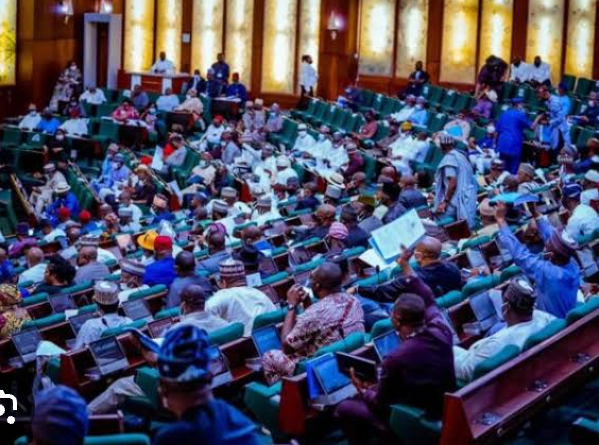
Members of the Enugu State Caucus of Peoples Democratic Party, ( PDP) in the House of Representatives, Rt. Hon. Nnolim Nnaji , Rt. Hon. Martins Oke and Hon Anayo Onwuegbu have welcomed Rt. Hon. Dennis Agbo and Hon. Chidi Mark Obeta of Labour Party, (LP) to the PDP fold.
They observed that the visionary leadership of Dr Peter Ndubuisi Mba in Enugu State has ignited massive decamps and unprecedented upsurge of membership of the Peoples Democratic Party, (PDP) in the state.
The caucus in a statement issued after the two members of the House of Representatives, Rt. Hon Dennis Agbo of Igboeze North/ Udenu and Chidi Mark Obeta who represents Nsukka/Igboeze South formally announced their transfer of membership to PDP at the resumption of House plenary on Tuesday said it was gladdening to receive them into the PDP fold.
They stressed that PDP in Enugu State was witnessing a great rebirth as a result of the transformative development agenda being unleashed in various sectors of the economy of the state by Governor Mba which has received global commendations.
The Enugu State caucus Leader, Rt. Hon. Nnolim Nnaji on behalf of the members further noted that Governor Mba’s investments in infrastructure, agro economy, and security among others have made Enugu State a tourist’s haven adding that with the good governance structure he has put in place, his second tenure would be a walkover.
News
2025 budget: Tinubu Seeks NASS Approval For N1.784trn FCT Statutory Budget
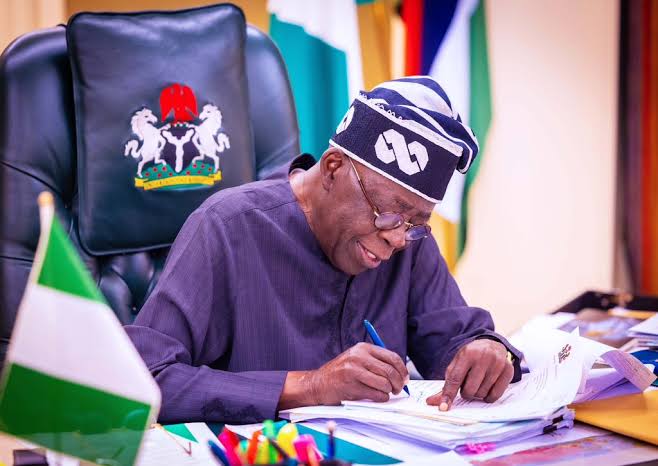
News
Finally , DTHA becomes one party assembly as Speaker, 21 other PDP members defect to APC
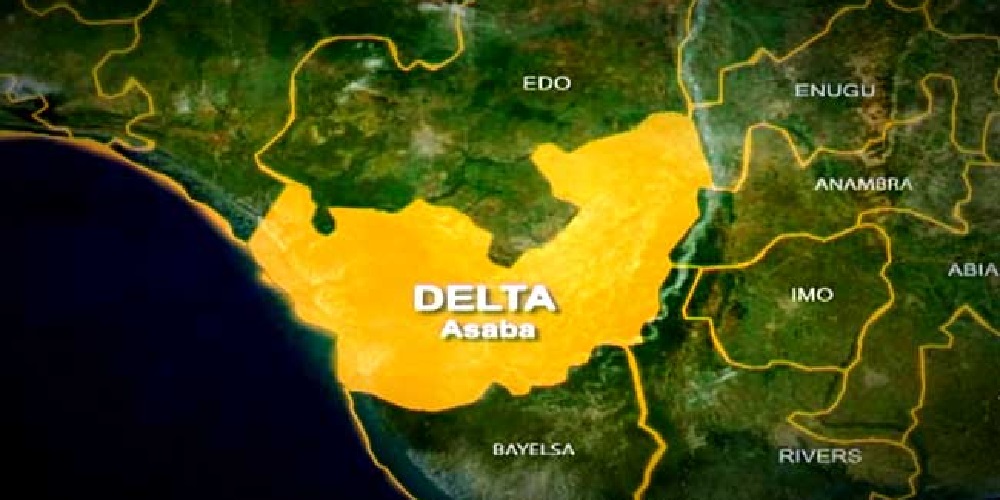
Speaker of the Delta State House of Assembly, Rt. Hon. Emomotimi Guwor, along with twenty-one other former members of the Peoples Democratic Party (PDP), elected into the Assembly has officially defected to the All Progressives Congress (APC), following a major realignment of political stakeholders across the state.
The defection of the twenty-two lawmakers has effectively transformed the Delta State House of Assembly into a one-party legislature, as the remaining seven members were originally elected on the ticket of the APC.
Announcing the development on Tuesday during the resumption of plenary after the Easter break, the Speaker stated that the decision was the result of extensive consultations with their constituents and political leaders throughout the state.
He emphasized that the move aligned with Section 109 of the 1999 Constitution, as amended.
While expressing appreciation to members for their contributions so far, Guwor urged the House to ensure the completion of all pending bills as the second legislative session nears its end.
He noted that the political shift towards the APC was in response to the realignment of stakeholders and the desire to align with the Federal Government under President Bola Tinubu’s leadership.
“The mass defection of members of the Peoples Democratic Party, led by Governor Sheriff Oborevwori, to the All Progressives Congress was made in the overall interest of Deltans and the state,” the Speaker said.
He explained that the decision followed extensive consultations held on April 23 and which cumulated on the official reception on April 28, 2025, at the Government House and the Cenotaph, respectively.
He said: “We are fully committed to partnering with the Federal Government to deliver greater development to Deltans.
“On behalf of the House, I commend the courage and visionary leadership of our Governor, Rt. Hon. Sheriff Oborevwori, in making this strategic and timely decision.
“As a legislative body, we stand with His Excellency in this endeavour. This renewed partnership between the state and Federal Government must be supported and allowed to flourish, so that we can begin to enjoy its benefits in the shortest possible time.”
He informed the House that he had received twenty-two letters (including his own) notifying of the change of party affiliation from the PDP to the APC.
The defection, he said, was driven by instability within the PDP’s national leadership and factional divisions within the South-South Zonal Executive Committee, leading to internal conflicts and disunity within the party.
Citing Section 109(1)(g) of the Constitution of the Federal Republic of Nigeria, 1999 (as amended), the Speaker affirmed the constitutional basis for the defection.
“With this action, the Delta State House of Assembly is now composed entirely of members from the All Progressives Congress. We thank our constituents for endorsing this progressive course of action”.
A motion to adopt the letters of party change was moved by the Majority Leader, Hon. Emeka Nwaobi, and seconded by Hon. Ferguson Onwo, who represents Isoko South II.
Speaking to journalists after the plenary, the Majority Leader, Hon Emeka Nwaobi reiterated that the defection was prompted by the crisis within the PDP.
“Our decision was based on the instability at the national level and the factionalization at the South-South level. Consequently, we chose to move to the ruling All Progressives Congress, in accordance with Section 109 of the 1999 Constitution, as amended,” he said.
-

 Opinion12 hours ago
Opinion12 hours agoRIVERS, WIKE, FUBARA, AND THE WAY FORWARD
-

 Politics11 hours ago
Politics11 hours agoJust in: Delta PDP Reps members defect to APC
-

 News22 hours ago
News22 hours agoFULL STEPS: How to check 2025 JAMB results
-

 News22 hours ago
News22 hours agoMinistry denies awarding N13bn contracts without due process
-

 News16 hours ago
News16 hours agoVDM may be released on Tuesday
-

 News13 hours ago
News13 hours agoNANS Barricades Lagos-Ibadan Expressway Over Alleged NELFUND Mismanagement
-

 News13 hours ago
News13 hours agoCourt bans Nnamdi Kanu’s in-law from 3 proceedings over live streaming
-
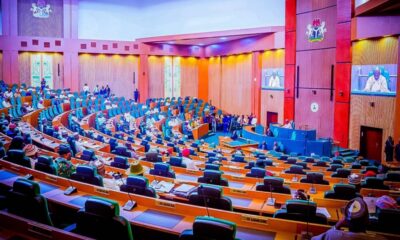
 News9 hours ago
News9 hours agoTension As Lawmakers Warns of Public Revolt Over Insecurity





